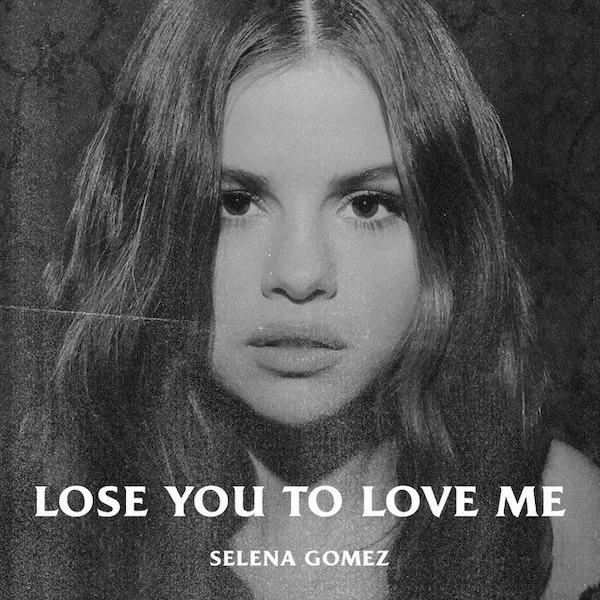The Parallels Between Ariana Grande and Selena Gomez's First #1 Hits
Eleven years after her first entry on the Billboard Hot 100(2008's "Tell Me Something I Don't Know" peaked at #58), Selena Gomez has finally achieved her first #1 single in the U.S. with "Lose You to Love Me." The heartbreaking ballad was one of two new singles, along with the also excellent "Look At Her Now," Selena released to introduce the campaign for her latest album. Since she started her music career with The Scene about a decade ago, Selena amassed six Top 10 hits in the U.S. prior to "Lose You to Love Me." Half of those hits came from her last record, Revival. With billions of streams worldwide, a legion of dedicated fans, and a legacy on television and pop radio, why did it take Selena so long to finally score a #1 hit?
Another child star was in a similar spot around this time last year. Ariana Grande, who recently executive produced the new Charlie's Angelssoundtrack, scored her first #1 hit with the career-shifting "thank u, next." Prior to the release of the record-breaking song, Grande had collected ten Top 10 hits, three #1 albums, and plenty of other Top 40 hits. So, why did Grande have to wait until the release of the lead single for her fifth studio album to celebrate her first #1 hit?
Part of it simply had to do with timing. If the release dates of "Problem" or "no tears left to cry" were moved up (or back) a week, either of those tracks could have very likely been Ariana's first #1. Nevertheless, as these things go, everything has a certain rhyme or reason. For pop music and chart enthusiasts, it was quite interesting and satisfying to see "Lose You to Love Me" rise to #1 exactly a year after "thank u, next" debuted atop the chart.
Written by Selena, Justin Tranter, and Julia Michaels, and produced by Finneas and Mattman & Robin, "Lose You To Love Me" is arguably Selena's best song. Her vulnerable vocal performance is backed by a somber piano and choir of her own vocals as she sings her way through a journey of hurt to arrive at a destination of confidence and self-love. The tender track wasn't necessarily an artistic revelation for Selena, but it certainly feels like the most honest reflection of her current mindset. Revival was a reflective album in its own right, but the singles that were pushed were radio-friendly standard pop fare. While all great pop tracks, "Good for You"; "Same Old Love" and "Hands to Myself" didn't necessarily reflect the major themes of the album or Selena's attitude. In a similar sense, Ariana's Top 10 hits prior to "thank u, next" were undeniable bangers, but the songs didn't really give us a sense of Ariana, the artist or person. Ariana gifted us sultry pop smashes with "Dangerous Woman" and "Side to Side," and empowering uptempos like "God is a woman" and "Break Free." Nonetheless, none of those tracks told us anything of substance. Like Selena with "Lose You to Love Me," at the time, "thank u, next" was the most honest musical reflection of Ariana's mindset.
Written and produced with her friends (Victoria Monét, Tayla Parx, Njomza, Tommy Brown & Co.), Ariana poured all of her emotions about the media's treatment of her love life, the dissolution of her engagement to Pete Davidson, and the passing of her ex-boyfriend and friend, Mac Miller, into one track. Over a sparkly trap beat reminiscent of her work on Christmas & Chill, Ariana gave a restrained vocal performance but delivered one of her most emotive vocal takes and instances of lyricism. Both "Lose You to Love Me" and "thank u, next" are deviations from the uptempo pop that launched and continued Selena and Ariana's respective pop radio dominance. Nevertheless, the tracks are emotional tunes that ultimately morph into anthems of of triumph.
So what does this all mean? For one, I take it to mean that audiences are more responsive when artists are more authentic. The dominance of social media has created an endless marathon of artists trying to be more "relatable" than the next, but when that energy of "relatability" is channeled into creating honest works of art in music... the sky is truly the limit. We saw this in 2016 when Beyoncé's deeply personal Lemonade scored her biggest first-week sales total (by Billboard tracking week rules) to date. Moreover, the success of these two songs are further proof that when a song genuinely connects with the public, it doesn't need the muscle of a massive promotional plan. "Lose You to Love Me," would have more than likely debuted at #1, had it not been released in the middle of Billboard's tracking week. "Thank u, next" debuted at #1 despite only being available to stream and purchase for less than half of the tracking week. Neither song needed a music video with a massive budget, performances on every talk show, or a relationship to bolster interest. The music was enough.
The biggest takeaway? Pop music is not dead. None of the tracks from Taylor Swift's Lover reached #1, Katy Perry is struggling to enter the Hot 100, Lady Gaga hasn't released non-soundtrack music in nearly three years, Rihanna seems to now be a full-time businesswoman, and Beyoncé has simply stopped caring about mainstream pop music. This doesn't mean that pop music is dead, it just means that we are witnessing a generational shift, a changing of the guard, if you will. Along with Ariana and Selena, Lizzo, Billie Eilish, Shawn Mendes, Jonas Brothers, and Halsey all scored their first #1 hits this year. If it hasn't been clear enough already, the proof is in the pudding. A new generation of pop stars has arrived and their ability to convey their relatability through their music will carry them through the next decade and beyond.


